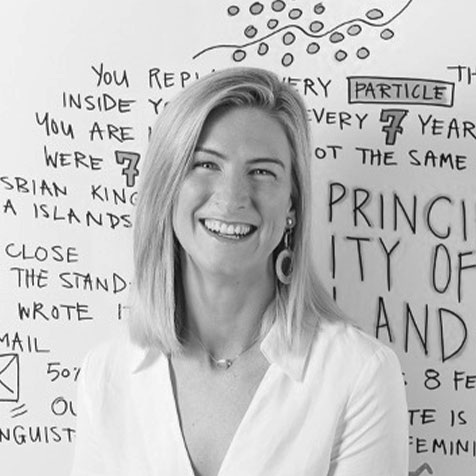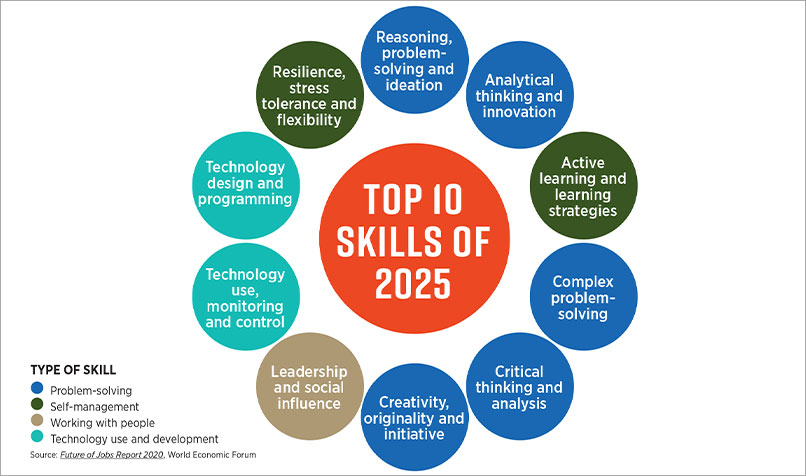Loading component...
At a glance
By Emma Foster
Critical thinking has gradually become one of the most sought-after workplace skills. The relative importance of critical thinking for employers now outranks several other key skill groups – including technology use and development and working with people – according to 2020 research by the World Economic Forum.

Behind this rise to workplace prominence is the crucial role critical thinking plays as economies shift from heavy historical reliance on resources towards technology-enabled knowledge, says Professor Deborah Brown, director of the University of Queensland’s Critical Thinking Project.
“It is no longer enough to know the content and methods of a particular discipline, or to be able to regurgitate knowledge,” Brown says.
“Being able to question existing practices and generate new solutions are foundational for an innovative economy, and there is no successful innovation that does not depend on a critical analysis of a problem.”
Critical thinking is also seen as an essential antidote to the serious global problems arising from the abundance of misinformation and disinformation found within the information being created online every day.

Organisational psychologist Charlotte Rush of behavioural change firm Inventium says the ability to analyse and evaluate “that sea of information, to work out what is actually relevant, credible and valid to reach a conclusion” is what will ultimately set people apart.
Critical thinking may not be an innate skill, but Brown believes it is one that can – and should – be taught.
“There is a lot of psychological evidence that shows we are naturally susceptible to certain kinds of biases in our thinking and decision-making.
“These get in the way of thinking critically, but we all have a capacity to become critical thinkers,” she explains.

Five habits for critical thinkers
1. Earmark thinking time
Efficiency is often prioritised over reflection, creating pressure to respond immediately to a problem or task, but Rush believes robust critical thinking requires deliberate allocation of thinking time.
“Thinking about a task and doing it are two different processes.
"If asked, for example, to analyse data and draw key insights, after you pull the data and review it, you need to make time to sit on it, process it and think about it, rather than immediately coming to a conclusion."
“If asked, for example, to analyse data and draw key insights, after you pull the data and review it, you need to make time to sit on it, process it and think about it, rather than immediately coming to a conclusion.
“Immediacy is often expected, but we need to normalise time for processing information to allow us to think critically, and that might be a night or a week, not just five minutes,” Rush says.
2. Crush your assumptions
When faced with a conundrum – such as why a project has stalled, or sales have unexpectedly fallen – Brown says to avoid the trap of becoming too invested in the first hypothesis.
“Always think that your first assumption might be wrong,” she explains. “Approach it scientifically and generate alternative hypotheses. By considering alternatives and questioning your assumptions, you are likely to gain new and important perspectives to help hone your thinking.”
3. Avoid confirmation bias
Once alternative hypotheses have been formulated, check that the arguments are supported by evidence, ensuring that disconfirming evidence has been considered – in an attempt to prove those hypotheses wrong.
“When we come up with an idea, we often gravitate towards evidence that is consistent with our existing beliefs and, in our haste, we ignore other pertinent information,” Brown says.
"Being able to question existing practices and generate new solutions are foundational for an innovative economy, and there is no successful innovation that does not depend on a critical analysis of a problem."
“Actively seeking out disconfirming evidence is a valuable way of evading our biases. You are not necessarily going to latch onto the truth better in every situation, but it will help you to minimise mistakes that are dependent on bad thinking.”
Negotiation and Influence for Success
4. Invite diverse criticism
Subject reasoning and ideas to feedback from others – especially those with diverse perspectives – and be tolerant of constructive criticism.
“We can get very invested in our ideas and take it as a personal affront when we are questioned, but when people adjust to constructive criticism as being normal, they can become much more comfortable about changing their minds for a better result,” Brown says.
“It is well known in research that ‘adversarial reasoning collaborations’ are often the best, because that constant challenge from different perspectives means people do not get comfortable in their assumptions.”
Getting devil's advocate roles right
5. Sharpen your story
An individual’s ability to think critically about a topic or argument is not valuable unless they can explain it to someone else and be believed by them.
“Whether you are writing or verbalising your conclusions, the way you construct and communicate your reasoned arguments matters,” Rush says.
“One way to become better is by learning about argument structures,” Brown adds.
“Learning skills in argumentation will also help you become a more discerning critical thinker.”

